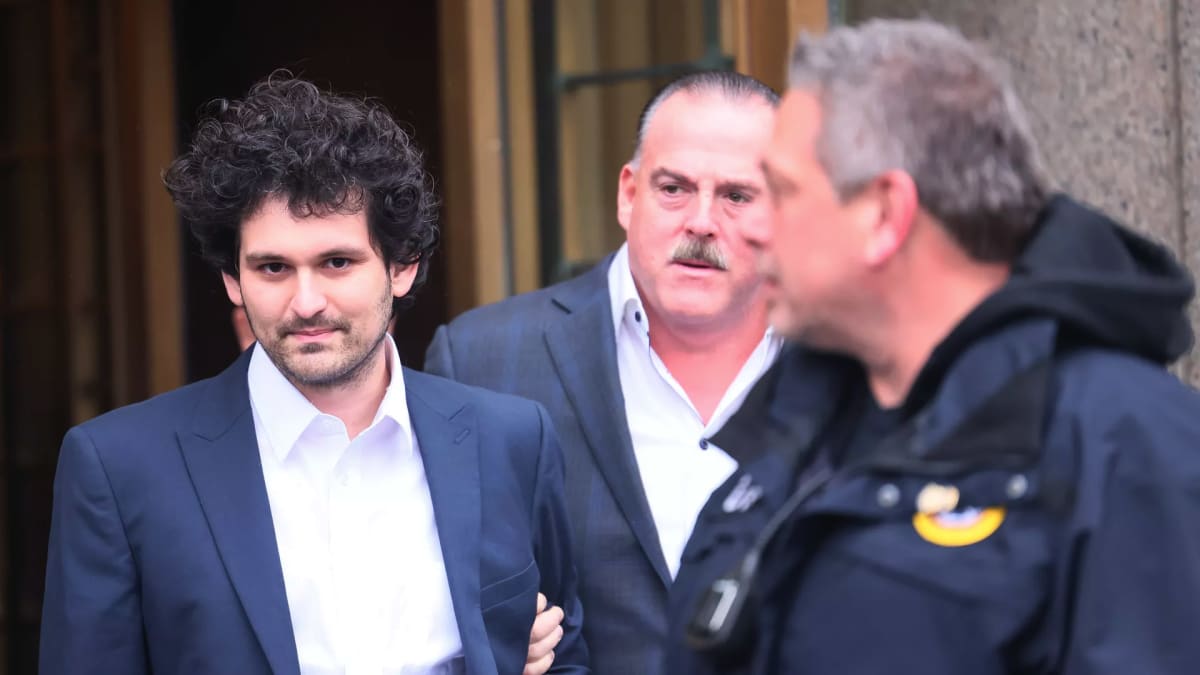
Sam Bankman-Fried, 30, had it coming.
The founder of bankrupt cryptocurrency exchange FTX and its sister company Alameda Research could see his pre-trial living conditions further constrained.
He, who until now enjoyed great freedom, could see his life being very restricted. In fact, federal prosecutors asked the court in charge of his case on March 3 to approve restrictions on his use of communication services and tools. These requests are part of a number of modifications to the conditions of his bail.
Federal prosecutors accuse him of alleged securities fraud, wire fraud, and multiple conspiracy counts, related to FTX customers and Alameda's lenders. Additional charges include illegal campaign contributions, money laundering, operating an unlicensed money-transmitting business and bank fraud.
The former crypto king has pleaded not guilty. But three of his lieutenants pleaded guilty to fraud and agreed to cooperate with investigators.
A Flip Phone
The former trader was released on bond on Dec. 22, after being extradited from the Bahamas, where he lived and where FTX was headquartered. His release had been secured after his parents signed a $250 million recognizance bond, pledging their California home as collateral.
The trial of the former trader is scheduled for October.
If Judge Lewis A. Kaplan sides with the federal prosecutors, Bankman-Fried will only be able to use a flip phone, or a non-smartphone, and will only be able to access a limited list of websites.
"The parties propose that the defendant be limited to the use of the following devices, and that he otherwise be prohibited from using any other cellphones, tablets, computers, video games (including video game platforms and hardware) that permit chat and voice communication, or smart devices with internet capability," wrote Damian Williams, U.S. attorney for the Southern District of New York, in a court document unsealed on March 3.
The former crypto king will be allowed to use a flip phone or other non-smartphone with no internet capabilities. The communication function on the phone will be limited to text messages (SMS) and voice calls and all other message applications will be prohibited, Williams detailed.
Bankman-Fried will also receive a new laptop but the device's serial number, MAC address, and IP address will be provided to the court and to the government. His connection to the internet will be via a previously authorized VPN.
"The parties propose that the defendant’s new laptop be configured so that he is only able to log on to the internet through the use of specified VPNs, and that the VPNs only permit the defendant to access websites that have been whitelisted through the VPNs," Williams wrote.
Risk of Witness Tampering
This tightening of his bail conditions comes after Kaplan said he could "conceivably” revoke Bankman-Fried’s bail, after he found that there was a "threat” of witness tampering.
A few days after his release under bail, Bankman-Fried contacted the former general counsel of FTX and used a virtual private network, or VPN, days after the judge said he wanted to restrict the use of encrypted devices.
A strict list of apps to which the former trader will have access via his laptop has been established. It is Zoom -- only to be used with defense counsel -- Microsoft Office, Adobe Acrobat, Screenshot tool, Notepad and Notepad++, 1password, Python (to read the FTX codebase), SQL tool (for running queries on the FTX read-only database), and a Web browser "used to access the internet consistent with the provisions set" by the parties.
For his personal use, a list of websites and apps, including websites of news media and tech groups, has also been determined: Nytimes.com, Nypost.com, Ft.com, Bloomberg, Forbes, WSJ, Businessinsider, Opensecrets.org, Prnewswire.com, Puck, Reuters, Coindesk, Cointelegraph, The Block, Decrypt, Beincrypto.com, Netflix.com, Spotify, Doordash.com, Uber eats, Amazon, MLB.com and NFL.com.
The prosecutors are also asking that his parents, with whom he currently lives, agree not to let him use their tech devices.
"The defendant’s mother and father will submit sworn affidavits listing their respective devices with serial numbers and MAC addresses (each has an iPhone, each has an Apple laptop, and they share a desktop iMac), and representing that they will not bring additional devices into the home nor permit the defendant to access their devices, which will be password protected," Williams said.







